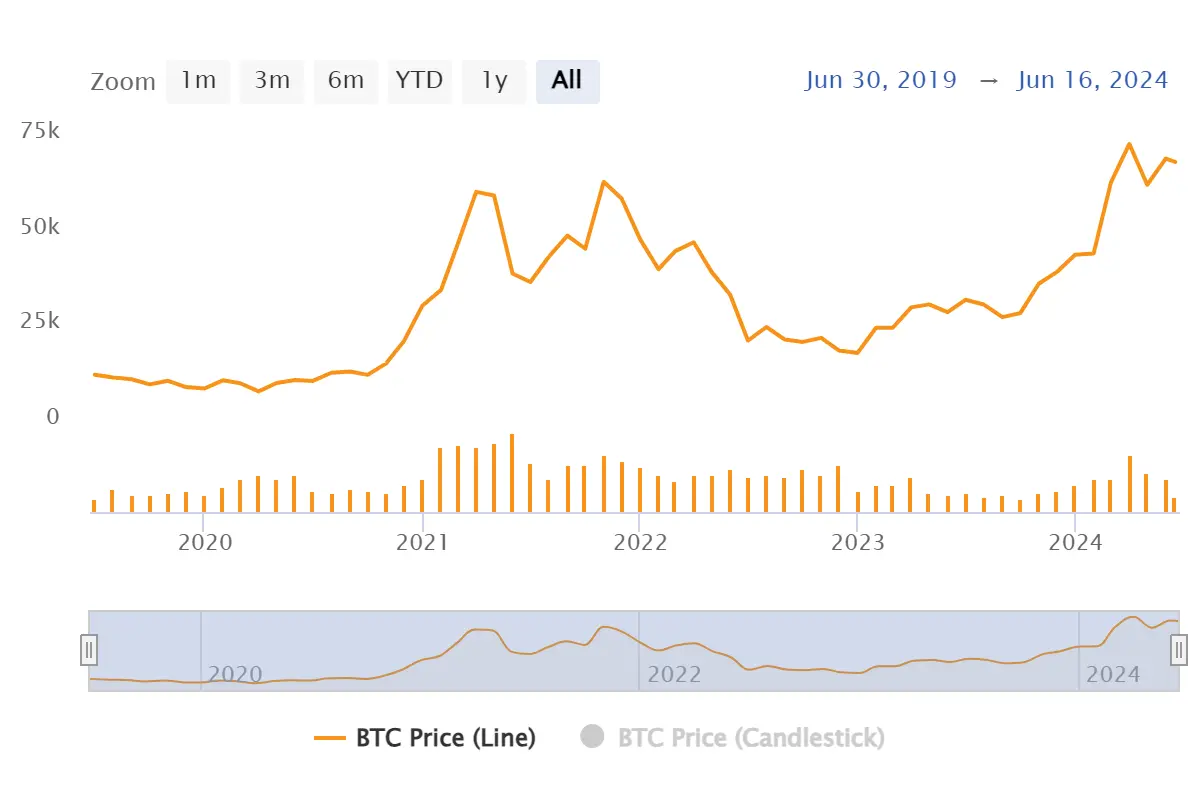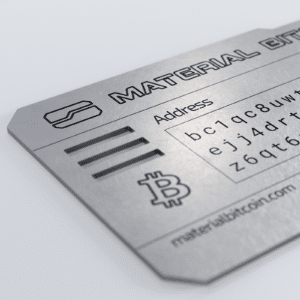Inflation is when prices are increased and therefore the purchasing power of money is decreased. It can significantly impact your finances and investment portfolio (hoping you have one).
What hedging against inflation means is that you strategically invest in assets that are either expected to maintain or increase their value over time, even as general prices in the country rise. This is a crucial step in keeping your wealth and financial portfolio healthy.
The main goal is that you invest in diverse asset classes that will help offset the impact of inflation since you have investments that are appreciating and overtaking the current inflation rate.
But, why is hedging against inflation necessary?
To help explain, let’s look at this example: If inflation goes up by 3% per year, this means that $100 today will be equal to $97 next year regarding purchasing power.
As time goes on, this impacts compounds which then reduces the value of your savings and assets if not properly looked after.
In this post, we are going to look into different techniques of investing for the best way to hedge against inflation.
Best Assets to Protect Against Inflation
Whether you’re investing to achieve financial independence or looking to protect your money during a recession, investing in diverse asset classes is our #1 suggestion.
This advice doesn’t differ when looking for the best way to hedge against inflation.
Let’s have a look at our top investments:
ETFs
Exchange-traded funds (ETFs) offer a unique opportunity to invest in a diversified asset. An ETF is usually made up of multiple investments like stocks, bonds, commodities, and more recently, cryptocurrencies. It’s a great tool for hedging against inflation because of its diverse nature.
✅Pros:
- Diversification helps to reduce risk: ETFs typically hold a variety of assets and are spread across different sectors and industries. This helps to lighten the impact of inflation on a single asset class. The most popular ETFs are iShares MSCI World, S&P 500, and the Nasdaq 100.
- Easy to trade: ETFs are traded on major stock exchanges, making them as easy to buy and sell. The first ETF was traded in 1990 on the Toronto Stock Exchange.
❌Cons:
- May include assets that do not perform well during inflation.
- Lack of control: Since you can’t break apart an ETF, you can’t pick and choose which assets make up your investment.
👌Suitable for:
- New investors
- Investors looking for a low-moderate risk
- Want easy management and trading option
- Quick liquidity
Fun Fact! There are over 1,600 unique ETF options listed on over 5 different exchanges.
Treasury Bonds (TIPS)
Treasury Inflation-Protected Securities, known as TIPS are a type of U.S. government-issued bond that is designed to help protect you against inflation. What it does is adjust its principal value in line with changes in the Consumer Price Index (CPI). This ensures that the investment in the bonds keeps its purchasing power.
✅Pros:
- Inflation protection: Government-aided protection is measured by the CPI.
- Government guarantee: As a US Treasury bond, TIPS are backed by the US government, which means that they are the “safest” investments available.
- Semi-annual interest payouts: You get paid interest twice a year at a fixed rate.
❌Cons:
- Interest rate risk: You get inflation protection, but the bond’s prices can be influenced by changes in interest rates. Meaning that if interest rates rise, the market value of TIPS can decrease.
- Lower initial yields: TIPS usually has lower initial yields compared to other bonds because of the inflation-protection feature. This isn’t good if inflation remains low.
👌Suitable for:
- Conservative investors who have a low-risk tolerance
- Long-term investors
- Retirees

Cryptocurrencies
Crypto, particularly Bitcoin, is a modern way to hedge against inflation, but a strong asset to have since it is finite (total amount of 21 million BTC available). It’s important to note that all crypto assets should be stored securely in crypto cold wallets, like that of Material Bitcoin. Cold wallets are offline storage devices that keep your private keys away from hacking attempts and threats.
✅Pros:
- Inflation protection: Unlike fiat currencies, the supply of many cryptocurrencies is capped, which means that they are harder to “dilute” in value.
- High returns: In the last 5 years, Bitcoin has returned 641% (between June 17, 2019 and June 17, 2024).
- Decentralization: Because cryptocurrencies work on decentralized networks, it reduces the risk of government interference or manipulation. The complete opposite investment class to TIPS, this separation from governments can also provide advantages.
❌Cons:
- Volatility: Crypto can be volatile with large swings taking place in short periods.
- Regulation: Since this is a fairly new asset, countries and regions are still adapting to clarify and regulate it.
👌Suitable for:
- Long-term Investors: Ideal for HODL investments over a long period
- Tech-savvy users

Real Estate
Owning properties gives you a tangible asset to help hedge against inflation. The main goal and advantage is that your properties will appreciate in value and also generate a monthly rental income, which typically also rises with inflation.
✅Pros:
- Inflation resistance: Real estate values and rental incomes increase with inflation, so it maintains the purchasing power of your investment.
- Provides income: Real estate gives you a consistent cash flow.
- Tangible asset
❌Cons:
- Illiquidity: Selling a property in a time of need might not be so easy or quick.
- Maintenance and management: Owning a property is always going to require ongoing maintenance, taxes, and property management fees if you do not want to handle the day-to-day issues.
👌Suitable for:
- Long-term investors
- Those looking to generate income

Stocks
Investing in stocks is a popular strategy for hedging against inflation. When you buy a stock you are buying a piece of ownership in a company that has the potential for capital appreciation or dividends. Stocks typically go down during times of inflation, but this can be an opportunity for many investors to purchase more shares.
✅Pros:
- Potential for high returns: Historically speaking, stocks have provided higher returns compared to other assets when managed correctly.
- Dividend income: If you invest in stocks that pay dividends, you can produce an income to help offset any inflation.
❌Cons:
- Market volatility
- Sensitive to the economy: Stocks are affected by economic cycles. During economic downturns, stock prices can plummet, and impact your investment.
👌Suitable for:
- Long-term investors
- Those looking to generate dividend payouts
- Professional traders *you need experience for this step*

Commodities
Investing in commodities, including gold, silver, and even art, is a good strategy. Commodities are known to keep their value or even appreciate when inflation rises. This makes them extremely valuable to include in your investment portfolio!
✅Pros:
- Historically protected: Commodities like gold and silver are known for maintaining their value over time. Especially assets like gold, which are seen as safe investments during inflation.
- Tangible asset
❌Cons:
- Storage: depending on the type of asset, finding a safe storage solution can be difficult and costly. For example, art needs maintenance, insurance coverage, and even temperature-controlled keeping.
- Security: Where are you going to keep these items that comply with its storage needs but are still secure from theft?
👌Suitable for:
- Long-term investors
- Low-risk tolerances
- Collectors
The nominal value in the Commodities market globally is estimated to reach US$131,300.00bn in 2024.
Historical Performance of Different Hedges
ETFs: ETFs that are mixed with a variety of assets and businesses have been demonstrated to be one of the best way to hedge against inflation. For example, the Vanguard Total World Stock ETF (VT) has had an 8.54% average 10-year annual return. This is a great statistic as the United States has averaged a 3.30% inflation rate since 1914.
Treasury Bonds (TIPS): TIPS provide reliable, inflation-adjusted returns, though typically lower than other assets.
Cryptocurrencies: Bitcoin has shown big potential as an inflation hedge recently, although not been historically tested in older inflation periods. It has had a 67.6% 10-year annual return from 2014 to today.
Real Estate: Property values and rental incomes generally rise with inflation, making it a strong long-term hedge.
Stocks: Historically, stocks have outpaced inflation over the long term but are volatile in the short term.
Commodities: Commodities like gold and oil typically gain value during inflationary periods. But, you need to hold onto these investments for the long term for adequate return.
Why You Should Hedge Against Inflation
Hedging against inflation is needed for every investor to maintain the purchasing power of their money.
Investing in some or all of these asset classes will help you diversify your portfolio, which will help protect your savings from inflation and help your wealth grow during ups and downs.
FAQs
What is the best hedge against inflation?
- There is not one best hedge against inflation. The trick is to diversify depending on your risk tolerances and future goals.
Can stocks hedge against inflation?
- Yes, stocks can hedge against inflation since companies usually increase their prices to match inflation. However, stocks can be volatile in the short term.
Is real estate a hedge against inflation?
- Owning properties can be an good strategy for hedging against inflations since property values and rents tend to rise along with inflation.
Is Bitcoin a hedge against inflation?
- Bitcoin is considered a hedge because of its limited supply and decentralization. It might be a riskier option for some since it is newer and has a technological connection that can off-put older investors.










0 Comments